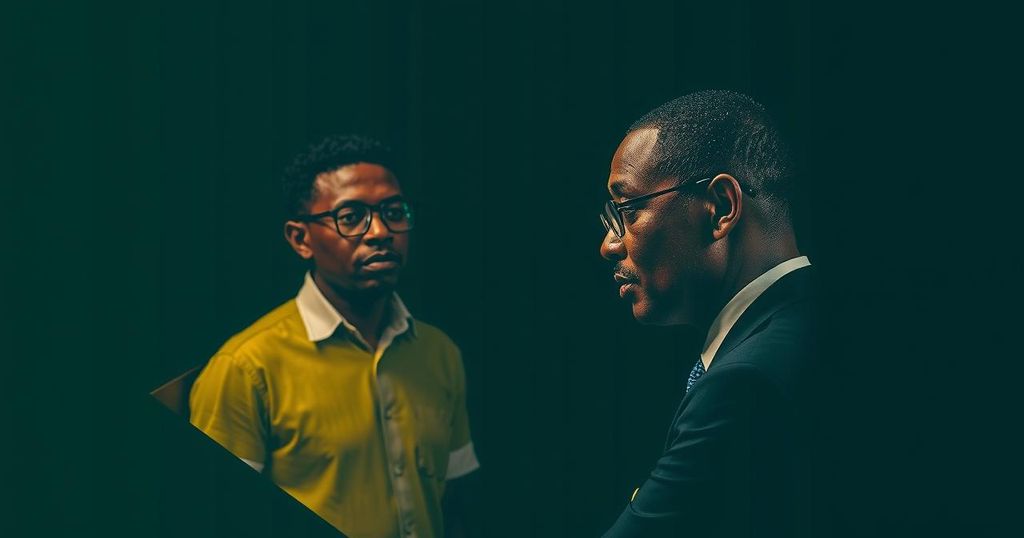Political Interference Threatens Human Rights Law Practice in Equatorial Guinea

Two human rights lawyers in Equatorial Guinea, Gemma Jones and Angel Obama, have faced suspensions from the Bar Association due to political interference. These actions reflect broader trends of repression against legal practitioners advocating for human rights. International calls for the rescindment of their suspensions emphasize the need for an autonomous judiciary in the country.
In Equatorial Guinea, membership in the national Bar Association is crucial for legal practitioners. However, recent political meddling has dangerously compromised judicial independence and access to justice. The Bar Association has targeted two human rights attorneys, Gemma Jones and Angel Obama, both of whom have faced suspension amid increasing threats to judicial autonomy and multiple instances of arbitrary detention within the country. Gemma Jones, a Madrid-born lawyer who relocated to Equatorial Guinea in 2018, has been notably vocal about the socio-economic struggles facing many citizens. In a November 2023 TikTok video titled “Wake Up” (“Despierten”), she urged for a functioning judiciary amidst widespread public sector wage delays and rising injustices. Subsequently, she was subjected to a disciplinary investigation leading to her two-year suspension for purported infractions against the Bar’s regulations. The United Nations Special Rapporteur on the independence of judges and lawyers, Margaret Satterthwaite, has voiced her concerns regarding these disciplinary actions. Despite facing intimidation and harassment due to her efforts—most notably her defense of victims of domestic violence and her previous arbitrary arrest—Ms. Jones remains undeterred in advocating for human rights. Similarly, Angel Obama, a lawyer since 2018, has taken on cases that expose numerous human rights violations, including the abuse and illegal detention of human rights defenders. His determination to oppose oppression only rendered him a target, especially after he defended controversial groups like Somos+. On August 9, the Bar Association threatened his professional license for continued representation of these organizations, leading to a temporary suspension on August 14 based on claims of violating institutional statutes. The Bar Association’s president, a close associate of President Obiang Nguema Mbasogo, continues to entrench his influence since 2003, collaborating simultaneously with the Justice Ministry. Such profound conflict of interest exemplifies the lack of independence that leaves legal professionals in Equatorial Guinea vulnerable to retaliation for advocacy. The nation, signatory to multiple international human rights covenants, remains under obligation to maintain a free and autonomous legal profession. International organizations, including Amnesty International, implore the Equatoguinean government to promptly revoke the suspensions of both Ms. Jones and Mr. Obama and uphold the rights of legal practitioners to operate freely without fear of retribution. This commitment to an independent judiciary is a cornerstone of a just legal system, essential for the enforcement of human rights and the rule of law in Equatorial Guinea.
Equatorial Guinea’s legal landscape faces significant challenges attributed to political interference that undermines the essential independence of the judiciary and the Bar Association. The recent suspensions of human rights lawyers, Gemma Jones and Angel Obama, highlight a broader pattern of repression against legal professionals who advocate for justice and human rights. This troubling trend poses serious risks for access to justice and protection of civil rights. The global human rights community continuously monitors these situations, urging the government to adhere to international obligations regarding judicial independence and human rights protection.
The actions taken against Gemma Jones and Angel Obama illustrate the perilous state of judicial independence in Equatorial Guinea, where political constraints undermine lawyers’ ability to advocate for human rights. The suspensions are indicative of a larger systemic issue affecting legal professionals in the country, compromising justice and the rule of law. A commitment to safeguarding the independence of the Bar Association and ensuring the protection of human rights defenders is essential for restoring confidence in Equatorial Guinea’s legal system.
Original Source: www.amnesty.org







